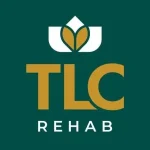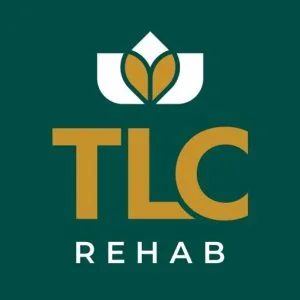
Breaking the Stigma: Myths and Facts About Addiction and Rehabilitation | TLC Rehab
Discover how TLC Rehab, The London Centre, is dismantling the stigma around addiction. Explore common myths, the challenges of addiction, and the compassionate journey toward recovery offered by TLC Rehab.
Education is a powerful tool for change. By spreading evidence-based information, TLC Rehab is committed to breaking misconceptions and creating an environment of understanding, empathy, and hope.
Understanding Addiction: Breaking the Stigma
Addiction is often misunderstood, and those affected face stigma, judgment, and isolation. These misconceptions make it harder for people to seek help and for their loved ones to offer meaningful support. TLC Rehab (The London Centre) is at the forefront of combating these myths, providing a compassionate and empowering environment where individuals can reclaim control of their lives. At TLC, recovery is not just a clinical process—it’s a journey filled with empathy, personalized care, and reintegration into a healthier lifestyle.
How Stigma Hinders Recovery
The Weight of Shame and Isolation
Addiction is frequently misjudged as a moral failing instead of a complex health condition. This leads to feelings of shame, causing individuals to hide their struggles and delay seeking help.
Loved ones, too, may unintentionally contribute to this stigma, misunderstanding addiction as a choice rather than a disease. This cycle of judgment and isolation exacerbates emotional pain, often driving individuals deeper into addiction as a way to cope. Instead of reaching out for support, they may turn to substances to dull feelings of rejection, guilt, or loneliness. Breaking this cycle begins with understanding and empathy—from family, friends, and society as a whole.
Myths About Addiction and Rehabilitation: Debunked
Myth 1: Addiction is a Choice, Not a Disease
One of the most damaging myths is the belief that addiction stems from personal weakness. In reality, addiction is a chronic disease that alters brain chemistry and impairs self-control. While initial substance use may be voluntary, addiction is influenced by genetic, psychological, and social factors, making it a health condition—not a moral failing.
Myth 2: Rehabilitation Doesn’t Work, and Relapse Equals Failure
Another common misconception is that rehabilitation is ineffective or that relapse signals failure. Recovery is a process, not a one-time event. Like managing other chronic conditions, setbacks are a natural part of the journey. With the right treatment and support system, individuals can overcome relapses and achieve lasting recovery.
Myth 3: Addiction Only Affects Certain People
Addiction is indiscriminate—it affects individuals across all demographics, regardless of age, gender, or socioeconomic background. This stereotype prevents many people from recognizing their struggles or seeking help. Recognizing addiction as a universal issue is essential to fostering compassion and understanding.
The TLC Rehab Difference: Compassionate Care for Recovery
TLC Rehab is committed to providing a safe, judgment-free space where individuals can address their addiction. With a holistic approach to treatment, TLC focuses on physical, emotional, and mental healing through a range of tailored services:
Individualized Therapy: Customized sessions to address personal triggers and underlying issues.
Group Support: A community where individuals share experiences and find collective strength.
Reintegration Support: Practical tools for rebuilding relationships, establishing routines, and reintegrating into society.
The ABC’s of Recovery: Simple Yet Transformative
TLC’s innovative ABC’s Model provides a straightforward framework for recovery:
A – Abstain: The first step in breaking free from addiction.
B – Believe: Building self-confidence and trust in the recovery process.
C – Change: Adopting healthier habits and a positive mindset.
By following these steps, clients at TLC achieve sustained recovery through a proven, results-driven approach.
The Role of Loved Ones in Recovery
Family and friends play an essential role in supporting recovery. Recognizing signs of addiction—such as behavioral changes, mood swings, or withdrawal from relationships—can prompt early intervention. Approaching individuals with empathy and offering support without judgment creates an environment where they feel safe seeking help. Encouraging professional treatment like that offered by TLC Rehab can be the catalyst for a hopeful and healthier future.
Your Next Step: A Message from TLC Rehab
Breaking the stigma of addiction starts with a shift in perspective. By understanding addiction as a multifaceted disease, society can foster compassion and provide the support necessary for recovery. TLC Rehab embodies this mission, offering personalized care and expert guidance in a welcoming, supportive environment. Every individual at TLC is treated with dignity, helping them move toward a brighter, healthier future.
The Power of Knowledge: Dispelling Myths and Fostering Empathy
Education is vital in combating fear and prejudice surrounding addiction. Misunderstandings often stem from ignorance, but evidence-based knowledge can dispel myths and humanize those struggling with addiction. Seeing addiction as a health condition rather than a personal failure encourages compassion and support. With the right resources and community, anyone can overcome the challenges of addiction and reclaim their life.
Your Next Step: A Message from TLC Rehab
Breaking the stigma surrounding addiction is crucial for fostering an environment where individuals feel empowered to seek help. Addiction is not a moral failing—it is a complex health issue that requires understanding and professional care. At TLC Rehab, we provide the “tender loving care” necessary for healing and reintegration. Together, we can support loved ones and create a culture of empathy, making recovery an attainable goal.
Contact Us Today:
📍 81 Torrington Park, London N12 9PN
📞 020 3098 7007
✉ info@tlcrehab.co.uk
🌐 tlcrehab.co.uk

